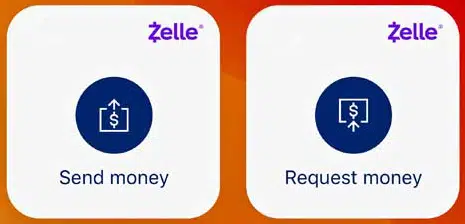The controversy regarding fraud and scams on the Zelle peer-to-peer payment network reached a new level on Thursday with a short statement from Early Warning Services LLC, the bank-owned company that operates Zelle, referring to “misleading reports of fraud and scams” on the network and “incomplete” external analysis from outside sources.
The statement also included a defense of Wells Fargo & Co., one of the seven financial institutions that own Scottsdale, Ariz.-based Early Warning. Wells last week received a letter from Sen. Elizabeth Warren, D-Mass., indicating the rate of Zelle fraud at Wells has been almost twice as high as for “other banks.” But the Thursday statement from Early Warning shot back: “Based on data reported to the Zelle Network, recent statements regarding Wells Fargo’s fraud and scam rates are inaccurate. Wells Fargo’s rates of reported fraud and scams are extraordinarily low and comparable to the Zelle Network as a whole.”
The latest statement from Early Warning comes in the wake of criticism from Warren and other Senators who have expressed concerns about fraud rates on the 5-year-old Zelle network, which competes with PayPal Holdings Inc.’s Venmo service and with PayPal itself in the market for person-to-person transfers.

Warren and seven other Senators in July sent a letter to the seven banks demanding data regarding fraud and scams on Zelle. Warren earlier this month published a report detailing the group’s findings. Besides Wells, the Early Warning owners include Bank of America, Capital One, JPMorgan Chase, PNC, Truist, and U.S. Bank. All of the banks complied to varying degrees with the Senators’ data request, though Warren’s report singled out Chase for holding back some requested information. “Complete data sets” from BofA, PNC, Truist, and U.S. Bank indicate total fraud and scam claims on Zelle will total 240,000 this year, up from 80,000 in 2020, according to the report.
But Warren has been scathing about data she says some banks have held back. “At nearly every turn, most of the big banks have stonewalled, refusing to provide the information requested by members of Congress,” she said in her report.
The fraud controversy led Early Warning on Thursday to respond by referring to “misleading reports of fraud and scams” on Zelle. Some 99.9% of transactions on Zelle are “sent without any report of fraud or scams,” the company said. In a veiled reference to the Senate probe, the company added: “Any external analysis done is incomplete and does not reflect the efforts and data reported by more than 1,700 financial institutions on the Zelle Network.”
Much of the concern expressed by lawmakers has to do with the distinction between “fraud” and “scams,” or cases where consumers have been defrauded despite not authorizing a transaction as distinguished from cases where they have been induced, or “scammed,” by a fraudster to go ahead with sending money, making the transaction authorized though fraudulent.
A draft bill this summer in the U.S. House of Representatives would amend the 44-year-old Electronic Funds Transfer Act to explicitly cover instances where consumers authorize transactions as a result of fraudulent inducement. Regulation E, which implements the EFTA, covers losses owing to outright fraud but not what might be called “authorized fraud.”





